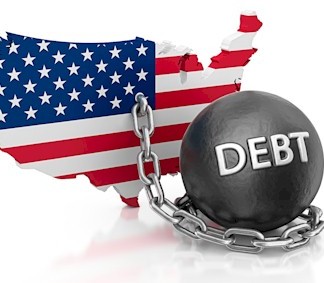You probably read about it, you are most likely using it, and you are probably interested in investing in it, but how familiar are you with what is behind the buzzword, FinTech?
“Financial technology, or FinTech, has actually been around a long time,” admits Richard Cayne. “But how it is being applied and deployed today reflects how far the traditional ideas of finance has changed.”
FinTech Defined
On its face, it seems quite simple. FinTech is short of Financial Technology, and just as the name implies, it refers to the technology that financial transactions run on. In the past, this would be normally would apply to techniques and technology developed for or used by financial institutions. The advent of money or spreadsheet computer software programs count as FinTech.
FinTech’s Definition Expanded
But now, FinTech has gone beyond the realm of mainstream financial institutions to tech-savvy entrepreneurs wanting to facilitate financial transactions. For most smaller investors, and regular users of financial services, they face daunting restrictions, complex bureaucracies, or exorbitant fees that all discourage them. The newest generation of FinTech aims to make financing, trading, and investing easier for everyone.
Products that have been or will be discussed elsewhere in Richard’s blogs include:
- Mobile Wallets: a platform for consumers and vendors to enter into purchase/sales transactions electronically, expanding the possibilities for security and for market reach.
- Peer to Peer Lending: also called crowdfunding, this allows for loans of all types and sizes to be expedited, possibly without the rigmarole that normally comes with financing through banks and other traditional sources.
- Cryptocurrency: taking the next step beyond fiat, or national, currencies, Bitcoin is at the forefront, challenging the traditional ideas of money and exchanges.
- Blockchain: normally associated only with cryptocurrencies, this is actually a method of tracking transactions that is allegedly completely transparent and easily tracked by the parties involved.
These are only a few examples of the financial territories being explored by FinTech firms.
While this could seem like an egalitarian dream come true, this is new territory for many, as access and widespread acceptance is sporadic and often inconsistent. But this could be a benefit for new adopters and investors.
Always Proceed with Caution
As with any new innovation, it is necessary to proceed with caution. Although they may be offering what seems to be traditional products of borrowing, lending, trading, and the like, the platforms and the companies behind them may not be backed or regulated by the same governmental bodies. This may mean that you could be vulnerable to unnecessary loss or even to fraud with no means of recourse.
Even the most experienced finance expert will find themselves checking and double-checking when it comes to these new FinTech developments. And, as have been emphasised time and again, it never hurts to consult someone who is informed and ready to assist you.














